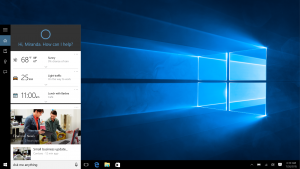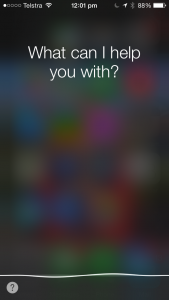First there was Apple with Siri, then Google with Google Now, then Microsoft with Cortana (not that Ford car of the 1970s). Now Facebook has jumped in on the act with M. What is this about?
We are talking of “personal-assistant” software that uses artificial intelligence and natural-language processing along with access to locally-stored and Web-hosted resources to answer questions.They also implement machine learning to fine-tune themselves to how you operate in life. Depending on the software, you may pose these questions by talking to the device or typing in the question. They will reply either by text or, if they implement speech technology, by voice. In some cases, you could ask the “personal-assistant” software to get the ball rolling for a hotel, restaurant or journey booking or product purchase.
Some of these programs provide API hooks to other programs and Web services either to learn from or pass commands to them so you could, for example, ask Google Now or Cortana to get Shazam to identify a particular song playing on the radio. These APIs may be passed to select programs as determined by the personal-assistant software vendor or may be widely available to every third-party app developer.
Initially this class of software was bound to a particular operating system but it is less becoming the case especially with Google Now, Cortana and Facebook M. Rather you can use these assistants at least on the major mobile platforms. Let’s not forget that these assistants are showing up on regular desktop and laptop computers with Microsoft rolling out Cortana for Windows 10 desktop use and Apple working on having Siri in an upcoming version of MacOS X.

Hey Cortana – Cortana which is the first of these intelligent personal assistants for regular-computer use
What do I see of this competition? Personally, the proliferation may be focused on tying a natural-language personal-assistant experience to be centric to particular platforms and aps even if your computing life is multi-platform. But it could then lead to different personal-assistant programs that are focused on particular experiences, beliefs and ideals so that the experience is more in tune with who you are, what you believe and what you like. For example, a media company could create a personal-assistant program based on their media properties like ESPN creating a personal-assistant program centered around their sports channels but learning who your favourite leagues, teams and competitors are.
But I would rather that these platforms focus on a level of modularity where you can interlink them with particular information sources and apps and give them the kind of functionality that you desire yet keeping your data private. As well, this will assure that users can use a single interface point rather than switching between interface points according to what they are after.





